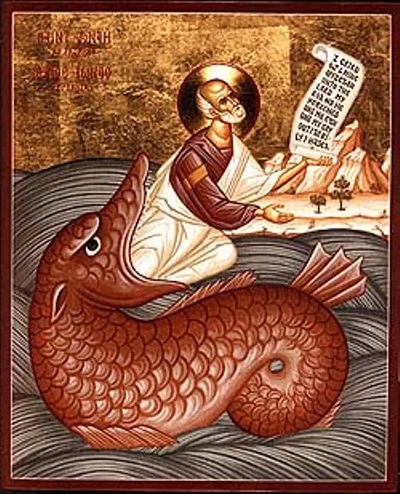
Fr. Manuel João, comboni missionary
Sunday Reflection
from the womb of my whale, ALS
Our cross is the pulpit of the Word
“Look to Him by whom you were made beautiful”
Year B – Easter Time – 4th Sunday
John 10:11-18: “The good shepherd lays down his life for the sheep”
We are on the fourth Sunday of Easter, halfway through the fifty-day Easter season. Every year, on this Sunday, we read a passage from chapter 10 of John’s gospel, where Jesus, through an allegory, presents himself as the good shepherd. This is why it is called ‘Good Shepherd Sunday’. The World Day of Prayer for Vocations, instituted by Paul VI in 1964, is celebrated today.
Jesus the Great Shepherd of the sheep, with the big eyes!
The allegory of the shepherd requires, first of all, the effort to identify with a reality of an age that is no longer ours, in order to grasp the message of Jesus. The image of the shepherd has such a long and rich biblical tradition behind it (particularly in the prophets) that we cannot do without it. A spirituality has developed around it (see Psalm 23: ‘The Lord is my shepherd’).
The New Testament takes up this fruitful tradition: Jesus is “the great Shepherd of the sheep” (Hebrews 13:20). It is not surprising, then, that the first image of Jesus in the catacombs is that of the ‘good shepherd’, centuries before the crucifix. On the tomb of a late 2nd century Christian we find this inscription: ‘I am the disciple of a holy shepherd who has big eyes; his gaze reaches everyone’.
The main characteristic of the good shepherd is that he ‘lays down his life for the sheep’. Giving one’s life is the greatest love. “The Good Shepherd is the sweet version of the crucified one. Sweet only on a figurative level, because the substance is the same. It is not for nothing that in John’s passage the phrase ‘giving life’ is the one that explains what ‘good’ means, and it recurs no less than five times” (D. Pezzini).
Jesus, epiphany of God’s goodness and beauty
“I am the good shepherd!”. It should be noted, however, that the Greek adjective employed by the evangelist is not ‘agathòs’ (good), but ‘kalòs’, i.e. beautiful. So the literal translation would be “I am the beautiful shepherd” or “the handsome shepherd”! This can give us another perspective of goodness. Goodness makes a person beautiful and beauty is the irradiation of goodness (Plato). Jesus is the epiphany not only of goodness, but also of beauty.
“Beauty and goodness are intertwined. […] In the Old Testament we come across the adjective tôb (also pronounced tôv) 741 times, and its meaning oscillates precisely between ‘good’ and ‘beautiful’, so that goodness and beauty, ethics and aesthetics are two faces of the same reality” (Gianfranco Ravasi). Today, the Word of the “Good/Beautiful Shepherd” could be translated into an invitation: “Taste and see how good/beautiful the Lord is!” (Psalm 34:9). He is, indeed, “the most handsome among the sons of man” (Psalm 45:3).
The world needs beauty
Beauty, aesthetic harmony, is a way to God, which perhaps we have not exploited enough, and to which humanity is particularly sensitive nowadays. Today, when aesthetic beauty is cultivated so much, the Christian is called to bear witness to beauty, reflecting the beauty of his Lord (2 Corinthians 3:18). St Augustine says: “Look to Him by whom you were made beautiful”.
We could say that cultivating and bearing witness to the beauty of Christ is a way of defining our vocation. The Pope expresses it well in his message for this Day of Vocations: “The World Day of Prayer for Vocations invites us, every year, to consider the precious gift of the call that the Lord addresses to each one of us, his faithful people on a journey, so that we may take part in his plan of love and incarnate the beauty of the Gospel in the different states of life”.
Dostoevsky wrote in his novel ‘The Idiot’: ‘Beauty will save the world’. Carlo Maria Martini took up this expression in his pastoral letter “What beauty will save the world?” (1999). He wrote: “It is not enough to deplore and denounce the ugliness of our world. Nor is it enough, for our disenchanted age, to speak of justice, of duties, of the common good, of pastoral programmes, of evangelical demands. We must speak of it with a heart full of compassionate love, experiencing that charity that gives with joy and arouses enthusiasm: we must radiate the beauty of what is true and just in life, because only this beauty truly enraptures hearts and turns them to God”. He further said:
“What drives us to seek so intensely the beauty of God revealed at Easter is also its opposite, namely the denial of beauty. True beauty is denied wherever evil seems to triumph, wherever violence and hatred take the place of love and oppression that of justice. But true beauty is also denied where there is no longer any joy, especially where the hearts of believers seem to have surrendered to the evidence of evil, where the enthusiasm of the life of faith is lacking and the fervour of those who believe in and follow the Lord of history no longer radiates”.
We have here matter for a serious examination of conscience for each and every one of us, for our communities and for the Church! We often complain that people are turning away from the faith and the churches are emptying. Do our lives, our faces, our relationships, however, reflect the beauty of the “Beautiful Shepherd”?
P. Manuel João Pereira Correia mccj
Verona, 18 April 2024
For the full reflection, see: https://comboni2000.org/2024/04/19/la-mia-riflessione-domenicale-guarda-a-colui-dal-quale-sei-stato-fatto-bello/